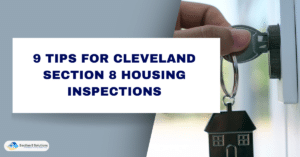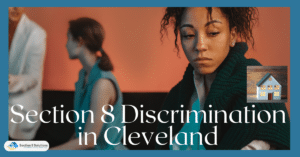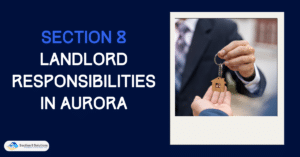Landlords participating in the Section 8 program in Las Vegas have certain responsibilities to fulfill. These include providing safe and sanitary housing, conducting necessary repairs, and maintaining the property in good condition. Landlords are also required to comply with all program regulations and standards to ensure successful participation in the program.
This article discusses the Las Vegas Section 8 landlord’s duties, including providing safe and sanitary housing, making repairs, maintaining the property, complying with program regulations and standards, understanding rent calculation and payment, and handling tenant issues.
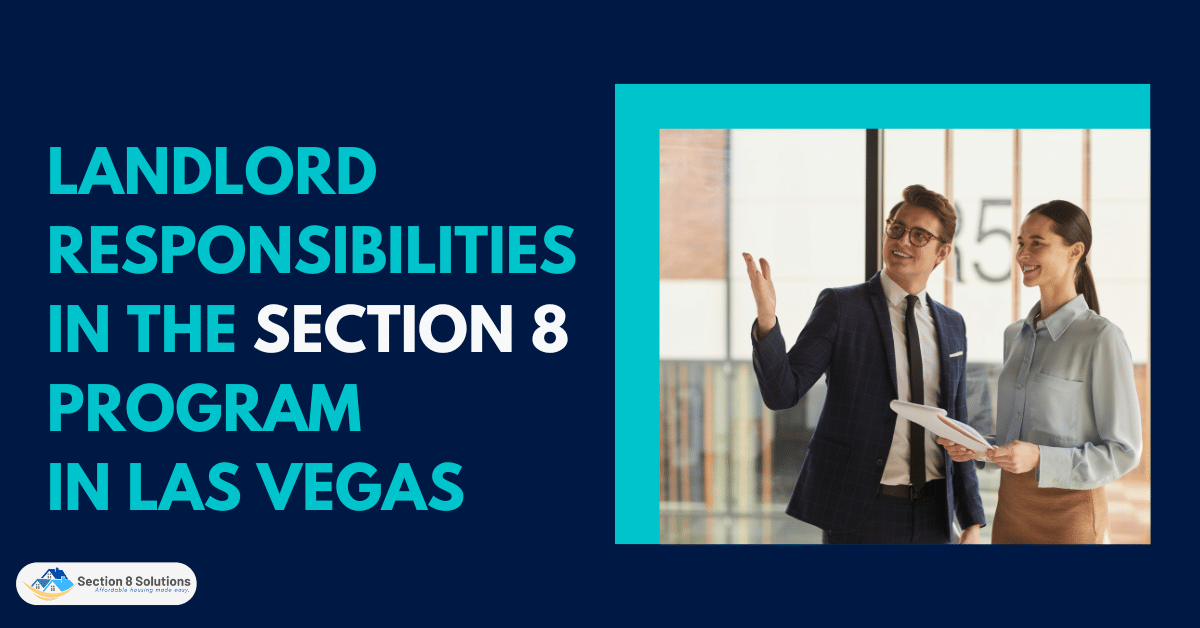
Providing Safe and Sanitary Housing
Providing safe and sanitary housing is a crucial responsibility for landlords in the Section 8 program in Las Vegas. Safe housing is free from physical hazards that could cause harm to tenants, while sanitary housing is free from environmental hazards that could lead to health issues.
Landlords must ensure that their properties meet the program’s safety and sanitation standards. They are responsible for maintaining a clean and hazard-free living environment by promptly addressing issues such as plumbing, electrical, and heating problems. Landlords must also keep the property free of pest infestations and ensure that the property is up to code.
Section 8 inspects rental properties for safety and sanitation. Inspectors inspect smoke alarms, carbon monoxide detectors, and illumination for program compliance. The landlord will receive a notice of non-compliance and a deadline if an inspection discovers a rental unit does not satisfy these standards.

Conducting Necessary Repairs
Prompt repairs and maintenance are crucial responsibilities for landlords participating in the Section 8 program in Las Vegas. Timely repairs and maintenance ensure that rental units are safe, habitable, and well-maintained, leading to satisfied tenants and successful participation in the program.
Section 8’s repair and maintenance process depends on the repair. Tenants are required to call the authorities and notify the landlord immediately for emergency repairs like a broken water main or gas leak. The landlord must quickly answer tenant requests for non-emergency maintenance.
Landlords risk hefty fines if they neglect repairs. Section 8 landlords must keep their units habitable or risk penalties or contract termination. If the landlord fails to respond to repair requests, tenants can register a complaint with the program.
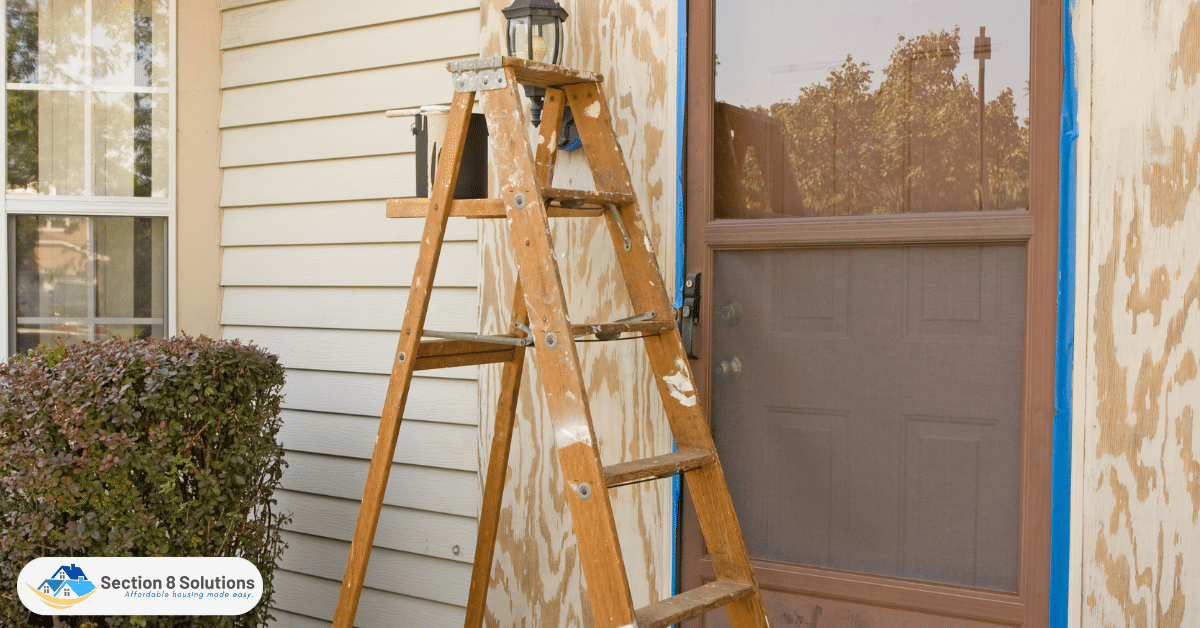
Maintaining the Property in Good Condition
Maintaining a property in good condition is crucial for landlords in the Section 8 program in Las Vegas to ensure that their tenants are living in a safe and habitable environment. Here are some ways to maintain the property in good condition:
- Perform regular maintenance: Regular maintenance ensures that the property is in good condition and prevents small problems from turning into major issues. This includes routine checks on appliances, HVAC systems, and plumbing.
- Promptly address repairs: When a tenant reports a repair issue, landlords should address it promptly. Delaying repairs can cause small issues to become larger, more costly problems.
- Keep the property clean: Regular cleaning ensures that the property is sanitary and presentable. Landlords should ensure that common areas and exterior spaces are kept clean and free of debris.
- Address pest infestations: Pest infestations can cause significant damage to property and pose health risks to tenants. Landlords should take measures to prevent pest infestations and address them promptly if they occur.
- Monitor and maintain safety features: Landlords should check smoke, carbon monoxide, and fire extinguishers. Emergency safety features can save lives.
- Keep the property in compliance with codes and regulations: Landlords must comply with local health and safety codes and regulations to ensure that their property is safe and habitable for tenants.
By prioritizing regular maintenance, prompt repairs, and keeping the property clean and safe, landlords can maintain their properties in good condition and provide their tenants with a comfortable and habitable living environment.

Complying With Program Regulations and Standards
Complying with program regulations and standards is a critical responsibility for landlords participating in the Section 8 program in Las Vegas. The program has various regulations and standards that landlords must comply with, including:
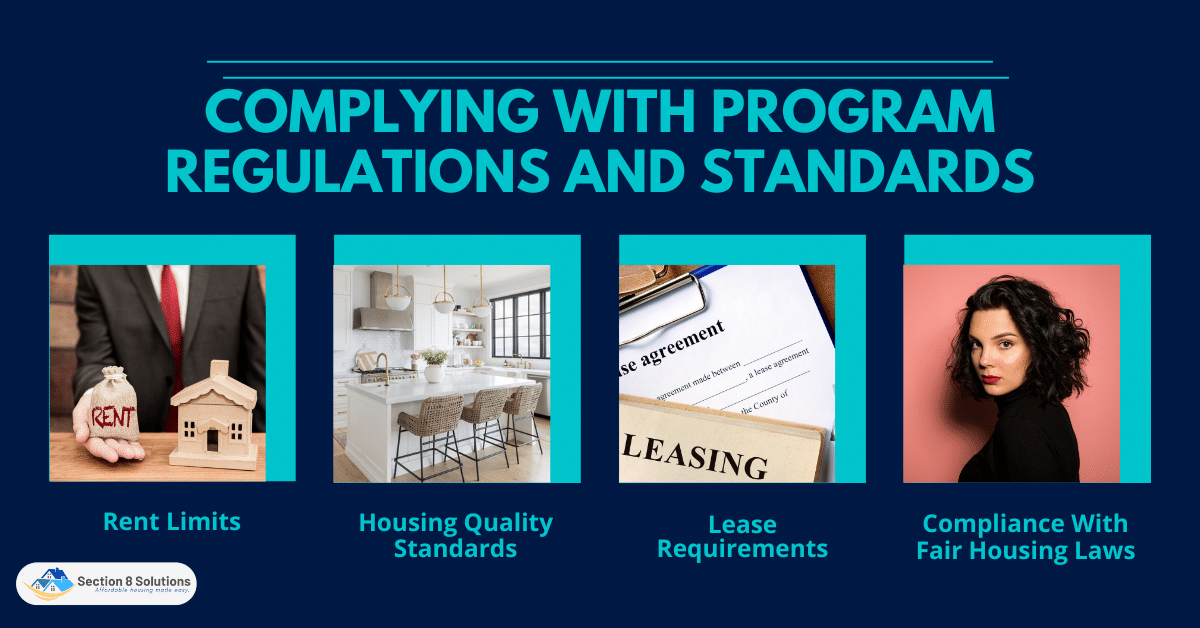
1. Rent Limits
Las Vegas Section 8 relies on rent controls. The scheme limits landlords’ rent to the local average. This ensures that program residents can afford a nice and safe home and prevents landlords from overcharging. HUD establishes rent limitations annually based on the local housing market. Participating landlords must charge rent within these limits, which are usually based on the number of bedrooms.
2. Housing Quality Standards
Compliance with Housing Quality Standards (HQS) is a critical responsibility for landlords participating in the Section 8 program in Las Vegas. The program requires landlords to ensure that their properties meet specific standards to ensure that they are safe, sanitary, and habitable for tenants.
The HQS guidelines cover a wide range of aspects, including electrical, plumbing, heating, and structural systems. The standards also address the condition and maintenance of the property’s exterior and interior, including the presence of lead-based paint and asbestos.
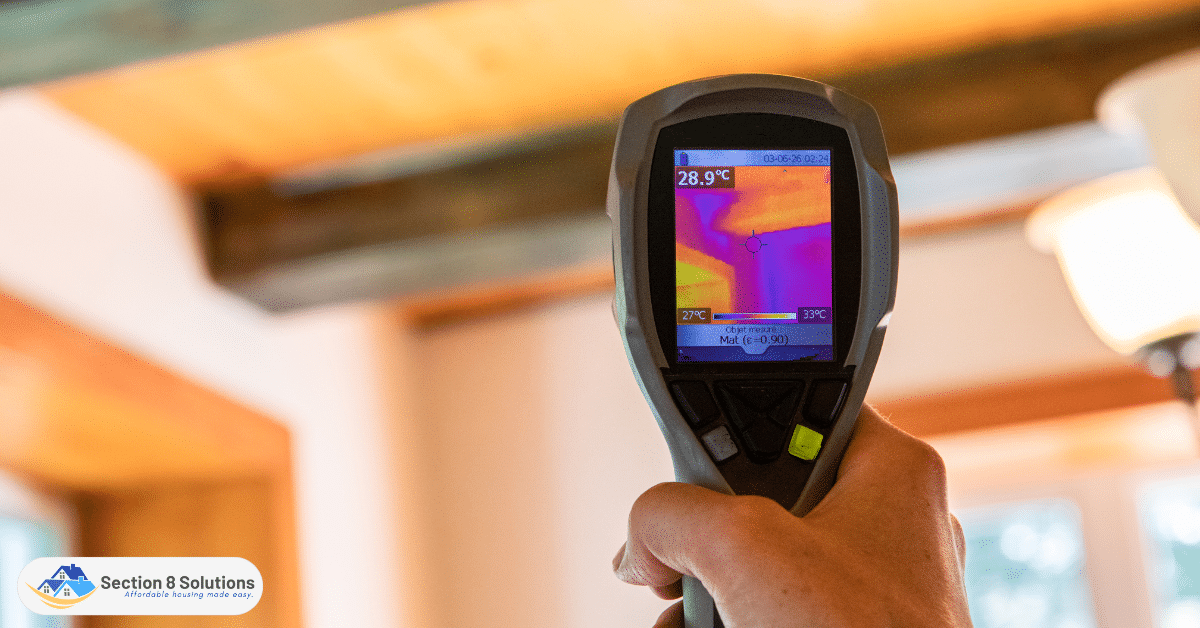
3. Lease Requirements
In the Section 8 program in Las Vegas, landlords are required to use a lease that complies with the program’s specific requirements. The lease must be written in plain language and provide tenants with a clear understanding of their rights and obligations under the lease.
One of the lease requirements is that landlords must provide tenants with a copy of the lease, including any addendums or attachments. The lease must also adhere to a set of guidelines for lease provisions, which includes provisions related to rent, security deposits, and the length of the lease term.
4. Compliance With Fair Housing Laws
Landlords must comply with federal Fair Housing laws, which prohibit discrimination against tenants based on their race, color, religion, sex, national origin, disability, or familial status.
Tenants’ well-being and program success depend on program compliance. Non-compliance can lead to contract termination and program exclusion for landlords. If they violate Fair Housing or housing quality regulations, landlords may be sued.
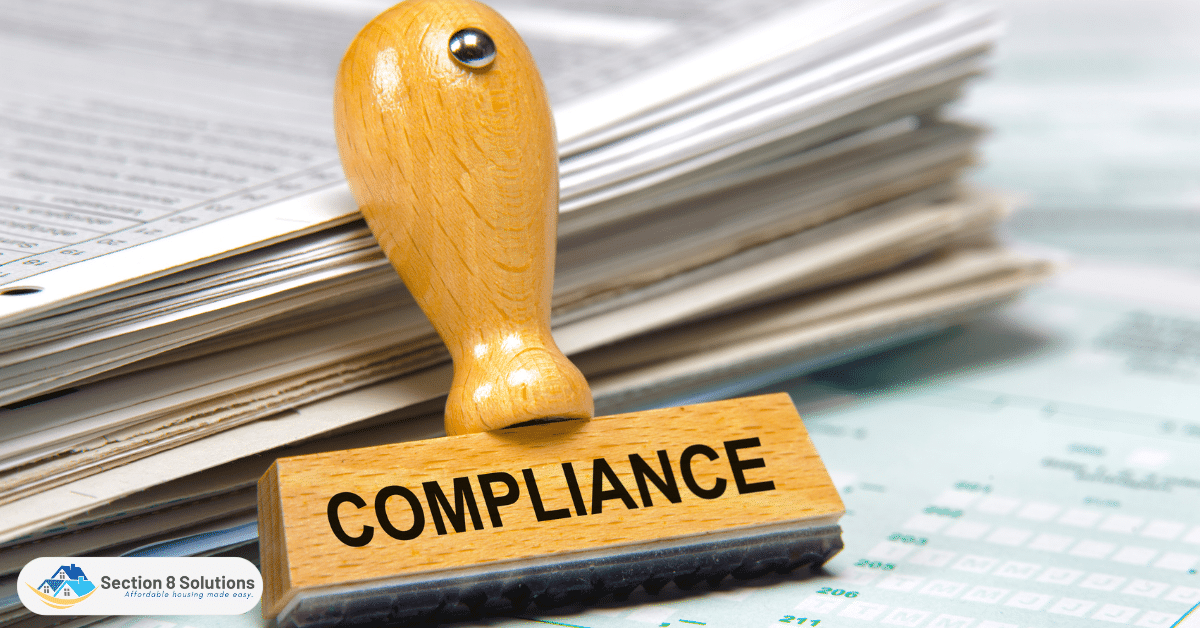
Understanding Rent Calculation and Payment
In the Section 8 program in Las Vegas, rent is calculated based on a formula that takes into account the tenant’s income, the rental unit’s size and type, and the average rent for similar properties in the local area. The tenant typically pays 30% of their income towards rent, with the remaining amount subsidized by the program.
Landlords participating in the program are responsible for understanding and complying with the rent calculation process. This includes accurately reporting the rent charged for their property and ensuring that the rent remains within the program’s established limits.
Rent payments in the program are made through a combination of tenant payments and program subsidies. Tenants typically pay their portion of the rent directly to the landlord, while the program subsidy is paid directly to the landlord by the program.
The program processes rent payments on a monthly basis, with payments made in arrears. This means that the landlord receives payment for the previous month’s rent at the beginning of the following month.

Dealing With Tenant Issues
How to handle tenant complaints is crucial for Las Vegas Section 8 landlords. Addressing late rent payments, property damage, and neighbor disputes in accordance with program guidelines can help sustain positive tenant relationships and promote the program’s performance in providing affordable housing for low-income families and individuals. Here are some Section 8 landlord strategies for tenant issues.
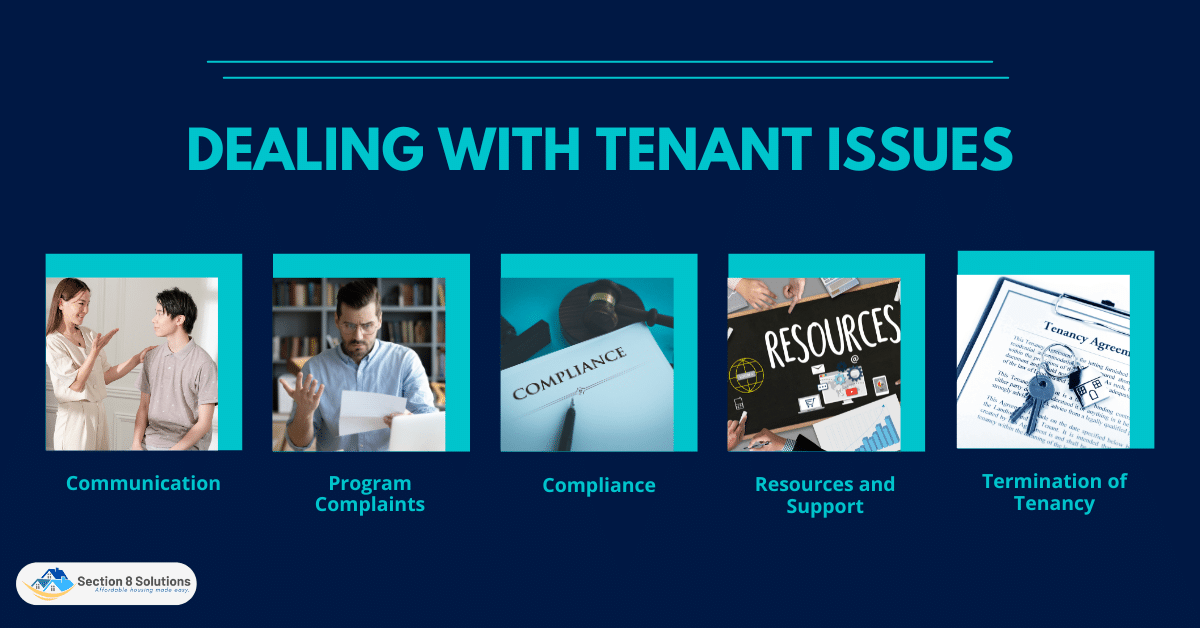
- Communication: To resolve late rent payments, property damage, lease violations, and neighbor problems, landlords should interact with tenants professionally and respectfully. This may require talking to the renter or scheduling a meeting.
- Program Complaints: Landlords may involve in the program if tenant communication fails. This may involve filing a program complaint or requesting mediation.
- Compliance: Landlords must follow program rules while resolving tenant problems. Fair housing rules, lease violation notices, and safe and habitable living conditions are examples.
- Resources and Support: The service may assist landlords settle tenant difficulties. This may include lease enforcement advice, legal referrals, or tenant communication training.
- Termination of Tenancy: Landlords may terminate tenancies if tenant issues cannot be handled. Landlords must observe program restrictions and fair housing regulations when terminating tenants.
Landlords can help the Section 8 program in Las Vegas provide affordable housing for low-income families and individuals by recognizing and resolving tenant difficulties.
Conclusion
As a Las Vegas Section 8 landlord, you must provide safe and clean housing, perform repairs, maintain the property, comply with program regulations and standards, understand rent calculation and payment, and manage tenant complaints. Landlords must fulfill these duties to ensure program success.
Remember that Section 8 is government-landlord cooperation to provide safe, affordable housing. Landlords may help the program succeed and improve the lives of low-income tenants by fulfilling their duties.



